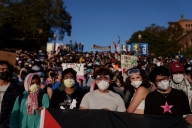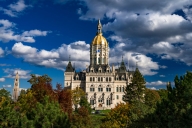You have /5 articles left.
Sign up for a free account or log in.
U.S. Department of Education officials are more closely monitoring a greater number of colleges and universities over concerns about their management of federal funds, according to newly released government data.
As of Dec. 1, 540 colleges or universities were facing the extra scrutiny known as heightened cash monitoring, up from 499 in September, when the department last reported the figures.
Of the 540 institutions, 86 were on the highest form of scrutiny, level 2, and 454 colleges were operating under heightened cash monitoring, level 1.
The colleges on the monitoring list collectively received nearly $8 billion in student loans and grants from the Education Department during the last school year, according to an Inside Higher Ed analysis of federal records.
The new additions to the list are mostly for-profit beauty and cosmetology schools, including sixteen campuses of the Marinello School of Beauty. A dozen campuses of the Concorde Career College for-profit chain also made the list, as did the for-profit Charleston School of Law.
The department also placed a handful of private, nonprofit colleges on its monitoring list: Saint Martin's University in Lacey, Wa.; Shimer College in Chicago; Thomas Jefferson School of Law in San Diego; Beacon College in Leesburg, Fla.; and Bethel College in Mishawaka, Ind.
In addition, the department has also placed Cheyney University, a public, historically black university in Pennsylvania, on its most stringent form of monitoring over concerns with the institution's "administrative capability."
Several large for-profit college chains remain on the list, including ITT Technical Institute as well as various Education Management Corporation-owned colleges such as Argosy University, The Art Institutes and South University.
The updated list also shows that 35 colleges have won removal from the restrictions since last September, including Jay's Technical Institute, which has repeatedly run into problems with department regulators over its handling of federal money and its high student loan default rate.







